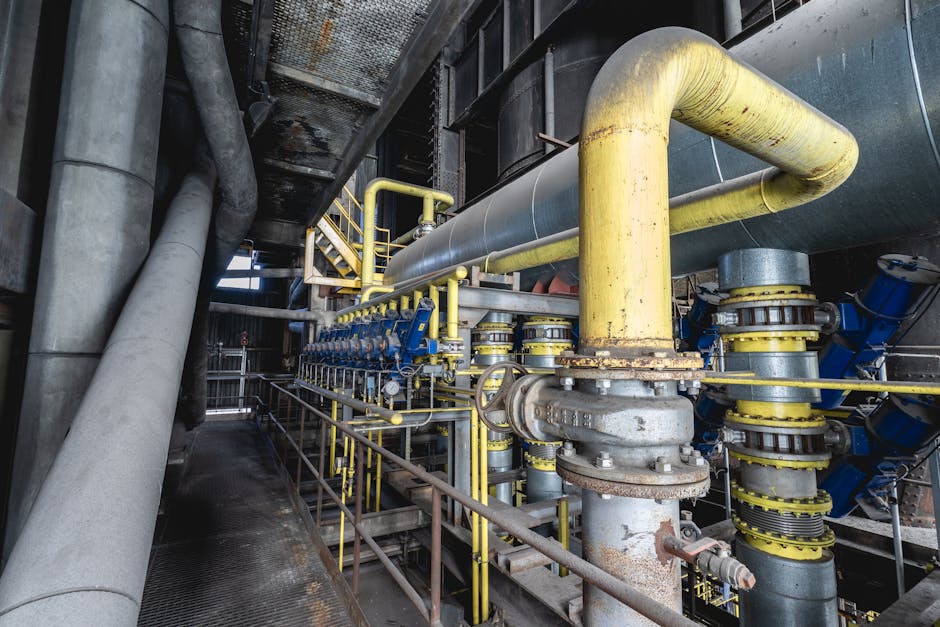

In today's fast-paced world, ensuring the safety and efficiency of your trailer is paramount. Trailer axle temperature monitoring is a critical aspect of maintaining your trailer's health and performance. High axle temperatures can lead to catastrophic failures, endangering both the driver and other road users. Monitoring these temperatures allows you to detect potential issues before they escalate, ensuring smooth and safe travels.
Axle temperature monitoring involves using sensors to track the heat levels of your trailer's axles. These sensors provide real-time data, enabling you to take immediate action if temperatures rise beyond safe limits. By keeping an eye on axle temperatures, you can prevent overheating, reduce wear and tear, and extend the lifespan of your trailer components.
Investing in a reliable monitoring system, such as the one offered by TrailerWatchdog, can give you peace of mind. These systems are designed to be easy to install and use, transforming any trailer into a smart trailer. With TrailerWatchdog, you can tow with peace of mind, knowing that your trailer is being constantly monitored for potential issues. Don't wait for a breakdown to remind you of the importance of axle temperature monitoring. Start protecting your trailer today!
Importance of Monitoring Axle Temperature

Monitoring axle temperature is crucial for several reasons. Firstly, it helps in preventing mechanical failures. Excessive heat can cause lubrication to break down, leading to increased friction and wear on axle components. This can result in bearings seizing, wheels locking up, or even complete axle failure, all of which pose significant safety risks.
Secondly, keeping an eye on axle temperatures can prolong the lifespan of your trailer. By ensuring that components are operating within safe temperature ranges, you reduce the likelihood of premature wear and tear. This not only saves you money on repairs and replacements but also keeps your trailer in optimal working condition for longer periods.
Additionally, axle temperature monitoring contributes to improved fuel efficiency. When axles overheat, the increased friction requires more energy to overcome, leading to higher fuel consumption. By maintaining proper temperature levels, you ensure that your trailer runs more efficiently, reducing fuel costs and environmental impact.
Lastly, consistent monitoring can provide valuable data for predictive maintenance. By analyzing trends in temperature data, you can anticipate when components may need servicing before they fail. This proactive approach minimizes downtime and keeps your operations running smoothly.
In summary, monitoring axle temperature is not just about preventing immediate failures; it's about ensuring the overall safety, efficiency, and longevity of your trailer. It's a small investment that pays off in significant long-term benefits.
Common Causes of Axle Overheating

Understanding the common causes of axle overheating is essential for effective trailer axle temperature monitoring. One of the primary reasons is inadequate lubrication. When bearings and other axle components are not properly lubricated, friction increases, generating excessive heat. Regular maintenance checks can help ensure that lubrication levels are adequate.
Another significant cause is overloading. Exceeding the weight capacity of your trailer puts additional strain on the axles, causing them to heat up more quickly. Always adhere to the manufacturer's recommended weight limits and distribute the load evenly to prevent this issue.
Poor brake adjustment is also a common culprit. If the trailer brakes are not properly adjusted, they can drag, creating additional friction and heat. Regularly inspecting and adjusting the brakes can mitigate this risk. Similarly, frequent or prolonged braking during downhill driving or in stop-and-go traffic can cause the axles to overheat. Using engine braking and driving at moderate speeds can help manage this.
Environmental factors such as extreme temperatures and rough terrain can exacerbate axle overheating. High ambient temperatures can make it more challenging for the axle to dissipate heat, while rough terrain can cause additional stress and friction on the axle components. Being mindful of these conditions and adjusting your driving habits accordingly can make a significant difference.
Lastly, mechanical issues like misaligned axles or worn-out components can lead to overheating. Regular inspections and timely repairs are crucial to maintaining the health of your trailer axles. Identifying and addressing these common causes can significantly reduce the risk of overheating, ensuring safer and more efficient trailer operations.
Innovative Monitoring Technologies
In the realm of trailer axle temperature monitoring, innovative technologies are transforming the way we ensure the safety and longevity of our trailers. One of the most groundbreaking advancements is the integration of IoT (Internet of Things) devices. These smart sensors can be attached to trailer axles to continuously monitor temperature and other critical parameters in real-time. The data collected is then transmitted to a central system, allowing for instant analysis and alerts.
Another significant technological leap is the use of thermal imaging cameras. These cameras can detect temperature variations across the axle and bearings, providing a visual representation of any potential overheating issues. Thermal imaging is particularly useful for identifying hotspots that may not be apparent through traditional monitoring methods.
Predictive analytics powered by artificial intelligence (AI) is also making waves in trailer monitoring. By analyzing historical data and identifying patterns, AI algorithms can predict potential failures before they occur. This proactive approach allows for timely maintenance and repairs, significantly reducing the risk of catastrophic axle failures.
Moreover, advancements in wireless communication technologies have made it easier to integrate these monitoring systems into existing trailer infrastructures. Bluetooth and other wireless protocols enable seamless connectivity between sensors and monitoring devices, eliminating the need for complex wiring setups. This not only simplifies installation but also enhances the reliability of the monitoring system.
Protect your trailer
Lastly, mobile applications are becoming an essential component of trailer axle temperature monitoring. These apps provide users with real-time data and alerts directly on their smartphones or tablets, allowing them to take immediate action in case of any abnormalities. The convenience and accessibility offered by mobile apps are unmatched, making it easier than ever to keep a close eye on trailer health.
The adoption of these innovative monitoring technologies is revolutionizing the industry, providing trailer owners with the tools they need to prevent failures, prolong the lifespan of their equipment, and ensure safe transportation.
Best Practices for Temperature Monitoring

To effectively manage trailer axle temperature monitoring, adhering to a set of best practices is crucial. First and foremost, it's important to establish a regular monitoring schedule. Consistent checks can help you identify any temperature anomalies early, thereby preventing potential damage to the trailer.
Calibration of monitoring devices is another essential practice. Ensure that all sensors and measuring instruments are properly calibrated according to the manufacturer's specifications. Accurate readings are critical for effective monitoring and timely intervention.
Incorporating redundant systems can also enhance reliability. Having multiple sensors on each axle ensures that you get consistent data, reducing the risk of false positives or negatives. Redundancy acts as a fail-safe mechanism, allowing for more accurate and dependable monitoring.
It's equally important to understand the baseline temperature for your specific trailer setup. Different trailers and axles may have varying temperature thresholds. Knowing what's normal for your equipment can help you quickly identify when something is amiss.
Another best practice is to integrate automated alerts into your monitoring system. Real-time notifications can be sent to your mobile device or email, alerting you to any sudden spikes in temperature. This allows for immediate action, whether it’s pulling over to inspect the axle or scheduling a maintenance check.
Regular maintenance checks complement effective temperature monitoring. Routine inspections should include checking for worn-out bearings, ensuring proper lubrication, and inspecting for any signs of wear and tear. These checks can prevent minor issues from escalating into major problems.
Finally, educating and training your team on the importance of axle temperature monitoring cannot be overstated. Ensure that everyone involved understands how to use the monitoring tools and interpret the data correctly. A well-informed team is your first line of defense against axle-related issues.
Benefits of Smart Trailer Systems

Embracing smart trailer systems offers a myriad of benefits that go beyond just monitoring axle temperature. One of the primary advantages is enhanced safety. With real-time data on axle temperature and tire conditions, drivers can make informed decisions to avoid potential hazards. This proactive approach significantly reduces the risk of accidents caused by axle failures or tire blowouts.
Another notable benefit is cost savings. Smart trailer systems help in early detection of issues, allowing for timely maintenance and repairs. This preemptive strategy prevents minor problems from becoming major, costly repairs. Additionally, well-maintained trailers are more fuel-efficient, leading to further savings in operational costs.
Improved operational efficiency is another key benefit. With smart systems, data is collected and analyzed continuously, providing valuable insights into the trailer's performance. Fleet managers can optimize routes, manage load distribution more effectively, and schedule maintenance during downtimes, thereby increasing overall productivity.
Moreover, smart trailer systems contribute to better compliance with regulatory standards. Accurate and easily accessible data on the trailer's condition helps in meeting safety regulations and avoiding penalties. This compliance not only ensures the safety of the cargo but also enhances the company's reputation.
The integration of smart technology also offers peace of mind to both drivers and fleet managers. Knowing that the trailer's critical parameters are being monitored continuously allows for stress-free operations. In case of any anomalies, instant alerts enable quick action, thereby preventing potential mishaps.
Lastly, smart trailer systems are scalable and adaptable, making them suitable for trailers of all sizes and types. Whether you have a small fleet or a large one, the benefits of adopting smart technology are substantial and measurable.
Tow with peace of mind, knowing that TrailerWatchdog is standing guard. Visit TrailerWatchdog to learn more about how our systems can transform your trailer into a smart trailer.




